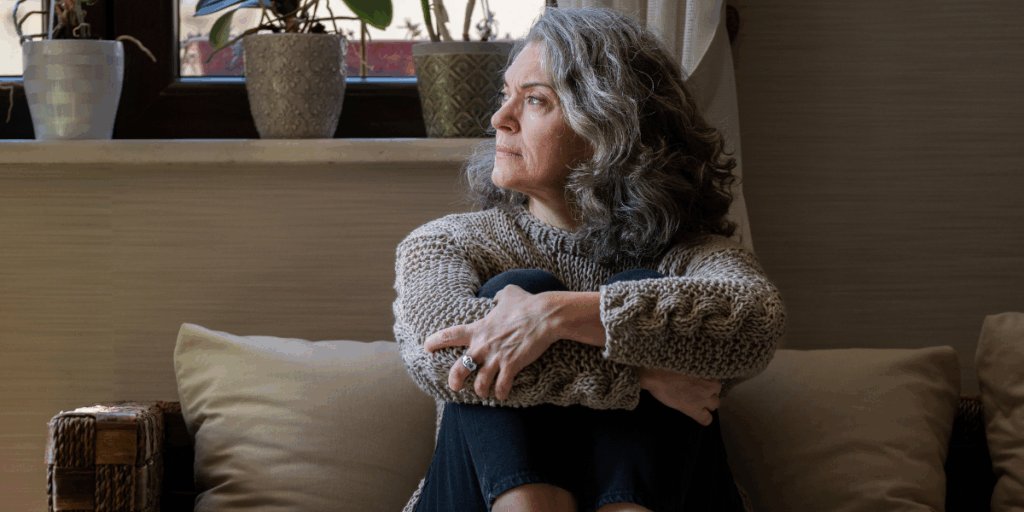7 Steps to Keep Defensiveness from Ruining Our Relationships (Part 2)
This is Part 2 of a two-part series on how to reduce defensiveness and have better mental health as well as more peace and productivity in your personal and professional relationships.
As we explained last time, defensiveness is dangerous in marriage and relationships (friends, family, workplace, and so on). How do we interrupt the cycle and reset our approach? We continue with the last four action steps here.
IMPORTANT: BEFORE you read Part 2, see Part 1, which offers crucial elements about how to reset our body’s and brain’s autonomic response when defensiveness occurs. Then, tackle the four action items below.
Action Step #4: When you feel defensive with a close loved one (spouse, friend, etc.), remind yourself, “This person cares about me.”
As many of you know, my research for The Surprising Secrets of Highly Happy Marriagesshowed that more than 99% of spouses deeply care about each other, even during painful times. The problem is, among so-so or struggling marriages, only 59% believe that. That’s a big gap, and we need to mentally fill it.
So imagine for the moment that your spouse is making an observation and you feel yourself starting to get defensive. For example: “It seems like when I do something around the house or with the kids, you see how I did it wrong rather than just appreciating it.” You may want to say, “No, I don’t!” You may feel attacked or hurt. (“How can they say that?! After all, I do this … and this … and this …! They have no idea how much I do!”) But remind yourself that, statistically your spouse really loves you—which probably means that they are trying to raise something that needs attention. Something that legitimately matters to them. Something you need to hear.
Which means it is something that matters for both of you.
The same pattern often applies to close friendships and family members. Sadly, there are cases where a spouse or close friend is toxic, which you should be able to determine by the input of objective observers such as a counselor, pastor, or trusted loved one. And if that objective observer—who has no emotional stake in the situation—is trying to tell you something that you may not want to hear (for example, “This is not okay, and you need to establish boundaries here”), that is yet another time to listen rather than getting defensive.
If you realize that you do indeed get defensive and have difficulty believing that your spouse (or other loved one) cares, consider that an important red flashing warning light of something you need to address for the sake of the relationship—and your own well-being.
Action Step #5: Take responsibility for your own words and actions
At its core, defensiveness is a coping mechanism that pushes attention away from us and tries to avoid unpleasant feelings in the moment (although not very successfully) but does nothing to solve the underlying issues in the long run. This often means (and makes others around you believe) that you are unwilling to address your own shortcomings. As this article from The Gottman Institute observes, responsibility is the antidote to defensiveness.
What might greater responsibility look like practically in the heat of conversation?
- “You’re right. I did see all the things that weren’t quite right rather than appreciating what you did do. Please forgive me.”
- “I can see your viewpoint that I threw you under the bus at the meeting. I didn’t intend to, but I want to own my part of this.”
- “I want to do better. Please be patient with me as I grow in this area.”
That last strategy contains a key word: grow. According to neuroscience, neurobiology, and scripture, a growth attitude is a key factor to wholeness and healing. Research finds that if you believe you can grow, you are more likely to take responsibility for your actions.
This is not “caving” to the other person; it is a determination to become a responsible, mature person ourselves.
Owning what we can do is crucial since we cannot change the other person—only ourselves. And yet when we do set aside defensiveness and take responsibility, it often results in completely breaking the cycle of both people being defensive. How?
Well, imagine that the other person—your spouse, that difficult colleague—has got their fists up, ready to protect their face from your next brutal jab. But then … you apologize and ask for forgiveness instead. Wait, what? That interrupts everything about the cycle. So then what happens? In the moment—and certainly over time—there is no reason for them to have their fists up and be defensive! So they drop their guard. They are less likely to jab back.
As each of you stop jabbing at each other, you start to each trust that you can keep your guard lowered. You start letting each other in again rather than prioritizing self-protection, which leads to a crucial attitude change.
Action Step #6: Prioritize protecting your marriage (rather than yourself)
As I mentioned in Part 1 of this series , defensiveness is an ugly D-word, and it’s often rooted in self-protection. However, the minute we said “I do,” we agreed to protect something bigger—our marriages. And as noted above, as long as you are in a relationship of goodwill, you may sometimes have to decide to let your guard down in order to protect your marriage first. You may sometimes have to forgive, even before the other person does. You may have to listen, even when you don’t want to. In short, you may have to do what you vowed to do—even if you don’t always feel like it!
Different seasons exert different pressures on this commitment. For example, I wrote in my recent series for empty nesters that we may be tempted to point out our spouse’s parenting mistakes when the kids move out and make choices that are not what we would have wanted. Or our spouse might be tempted to point out ours! Guess what’s going to creep in? Defensiveness. And if we’re not careful, this causes us to self-protect.
This dynamic is true in any season, and whether we have kids or not. It is also true way beyond marriage.
It is so easy to look at the speck in someone else’s eye rather than the log in our own. But doing so is to suggest that their sin is more serious than ours. None of us are perfect. But unless there is a true case of abuse or neglect, each of us can find ways to affirm what our spouse does right.
Action Step: #7: Consider counseling—especially for longstanding patterns
Finally, connecting with a trained mental health professional can be a game changer for those who need to unwind a longstanding pattern of defensiveness—particularly if it has arisen out of abuse, trauma, or a very real need to protect yourself when you were younger.
If this is your story, first of all, I’m so sorry. It shouldn’t have been that way.
But if you endured chronic blame, punishment, or trauma when you were younger, you may (understandably) be unwilling to admit your failures. And if that is your story and your pattern, the people who really value you and want to be in relationship with you may be suffering now, too. And I know you wouldn’t want that, either.
At the AACC World Conference last month, I spent time among 7,000 counselors, lay counselors, ministry leaders, and other stakeholders who care about mental wellbeing in a Christian context. In all their work and in all the research, I see that seeking counseling from those trained to help us heal is one very valuable way we can move forward in life when we are stuck.
It is not the only pattern, but it is an important one. And if we are defensive about that idea … well, maybe that is something we need to look at even more closely. Go back and read Action Steps #4 and #5, above.
In the end, taking greater responsibility for our actions—whether on our own or with help in a counseling setting—can help us knock down the destructive patterns of defensiveness in our lives. Not only will this help us mutually address issues that need attention, but it will also build better trust, caring, and even delight in our relationships.
And that’s a much, much better D-word.
If you are interested in having Shaunti bring research-based strategies, practical wisdom and biblical principles to your next event, please contact Nicole Owens at [email protected].
On our podcast, I Wish You Could Hear This, Jeff and I offer proven steps to help you thrive in your life, faith and relationships. In other words, we’ll offer the practical help you’ve grown accustomed to right here in this blog space. You’ll take away specific steps that help you today. Listen, follow, and share with your friends on YouTube, Apple Podcasts, Spotify and other platforms.
Please note: This post may contain affiliate links. As an Amazon Associate we earn a small amount from qualifying purchases through these affiliate links. This doesn’t cost you anything, and helps us continue bringing you great content!







